Growing broccoli can be an incredibly rewarding experience whether you’re a novice or a gardening veteran. With the right broccoli companion plants in your garden, you can help maximize the potential of your harvested broccoli and provide protection against pests for other crops. In this comprehensive guide, we will uncover everything you need to know about companion planting with broccoli – from selecting ideal companion plants to tips on successful implementation.
Why Your Broccoli Needs Companions
Companion planting is an age-old method of gardening that has been used for centuries. It involves strategically placing certain plants together, with the goal of enhancing growth and warding off pests. This system works because different plants require different environmental conditions to thrive, so companion planting can help create a desired microclimate for each plant in your garden.
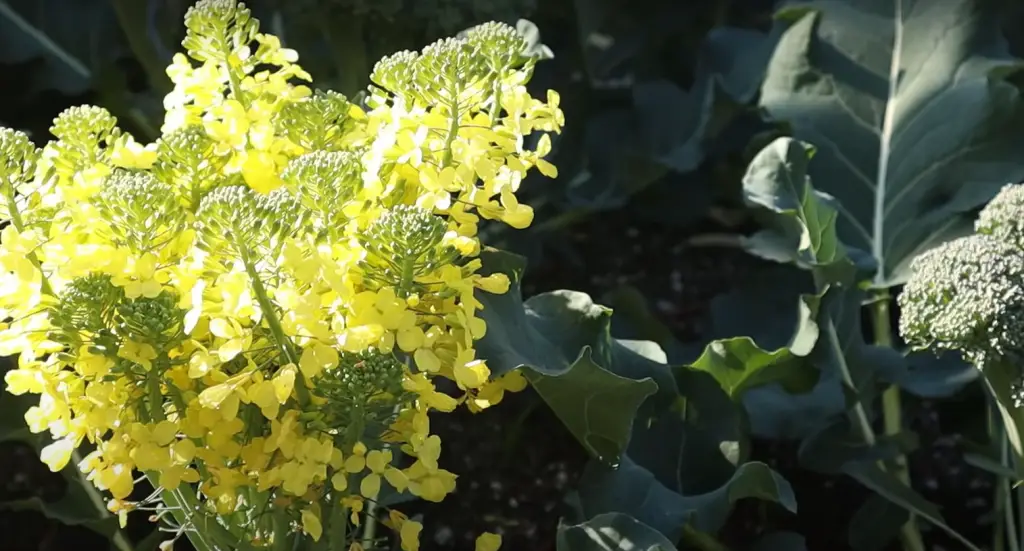
When it comes to growing broccoli, you should never underestimate the value of having companion plants nearby. Not only will these companions act as beneficial deterrents, but they can also improve the taste and texture of your broccoli crop. Here’s how:
- Companion vegetables like beets, kale and Brussels sprouts are very nutrient-dense and will contribute valuable nutrients to the soil, which will be absorbed by your broccoli plants.
- Certain herbs, such as thyme and oregano, can help your broccoli retain moisture and protect it from pests.
- Other vegetables like onions and garlic can also work as natural insect repellents. With them nearby, you won’t have to worry about pesky bugs infiltrating your broccoli crop.
- Nasturtiums are a great companion for broccoli because they act as an attractant for beneficial insects that prey on harmful ones. Plus, their bright flowers add a splash of color to any garden!
By planting companions alongside your broccoli, you’ll be able to create the ideal environment for maximum growth with fewer problems. Before you start planting, be sure to familiarize yourself with the specifics of companion planting and find out which plants will work best for your garden.
Benefits of Having Broccoli Companion Plants
Broccoli companion plants are a great asset to have in the garden; they help with pest control, soil enrichment and pollination. Here are some of the benefits you can expect:
- Pest Control: Broccoli companions can repel pests such as aphids, beetles and caterpillars. This means fewer problems for your broccoli plants and better yields.
- Soil Enrichment: Broccoli companions can add valuable nutrients to your soil, which makes them an important part of any organic gardening system.
- Pollination: Broccoli companions attract beneficial insects like bees and butterflies that will pollinate your broccoli flowers which helps with increased yields.
Having healthy companion plants in the garden is an easy way to ensure that your broccoli plants remain healthy and productive.
The Best Companion Plants for Broccoli
Broccoli is an incredibly versatile vegetable that can be grown in a variety of climates. It’s also easy to care for, requiring minimal maintenance and little attention. But while broccoli may not need much help to flourish, it does benefit from the presence of certain companion plants.
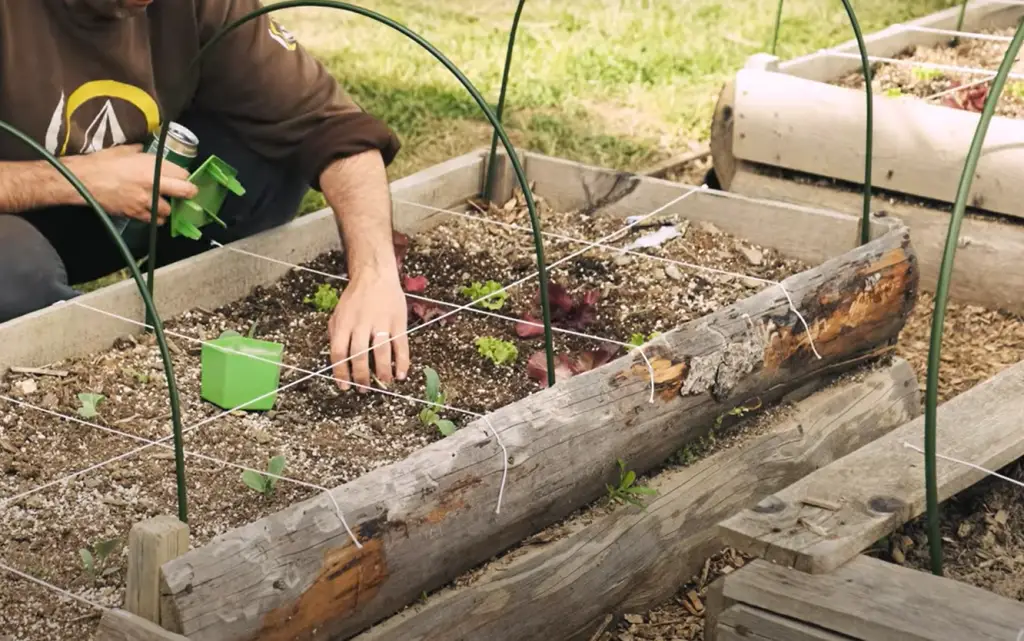
Companion planting is a centuries-old gardening practice that involves strategically pairing together different kinds of plants to create mutually beneficial relationships. This might involve spacing certain vegetables closer to one another, or planting them close together so they can provide support and protection against pests and disease. When used properly, companion plants can make all the difference in your garden!
Beets
Beets work great as a companion plant to broccoli. They help to add nutrition and prevent soil compaction, which can be beneficial for both plants. Additionally, beets are known to repel cabbage worms, making them an ideal companion for broccoli that is susceptible to these pests.
Make sure not to over-fertilize your plants, as this can cause stunted growth or bitterness in the taste of your final product! When harvesting your beets, pull them gently from the ground so you don’t damage their roots or surrounding vegetables. Once you’ve harvested your beets, enjoy them in salads or other dishes! With their sweet taste and vibrant color, beets make a great addition to any meal!Celery
Celery helps to repel cabbage maggots and other pests. Celery can also help with soil fertility by adding nitrogen-rich material to the soil. Additionally, celery plants produce beneficial oils that help protect nearby plants from disease. Plant celery in a sunny spot and keep it well-watered for maximum protection against pests. If you’re planting multiple rows of broccoli, try alternating them with rows of celery for even better results!
Chamomile
Chamomile is one of the most popular companion plants to grow alongside broccoli. This herb has many benefits, such as repelling pests and providing a source of nectar for beneficial insects. It also helps to improve soil fertility by fixing nitrogen from the air into the soil. For best results, plant chamomile in an area with well-drained soil that receives full sun throughout the day. When harvesting, be sure to leave some of the flowers on the plant so it can continue to attract beneficial insects. To get even more out of your chamomile, you can also dry it and use it as a tea or add it to salads and other dishes for flavor.
Lettuce
Lettuce is another great companion plant for broccoli. It can help to attract beneficial insects which will help control pests. Lettuce also acts as a ‘living mulch’, which helps to conserve moisture and reduce weed problems in your garden. When planting lettuce, make sure it’s far enough away from the broccoli so it doesn’t shade it out or compete for nutrients. Also, avoid planting varieties of lettuce that bolt quickly as they may not be ready to harvest before the summer heat sets in and affects your broccoli crop. For best results, choose a slow-bolting variety such as butterhead or oakleaf lettuce and plant them several weeks before or after sowing the broccoli seeds.
Potatoes
When planted in close proximity, potatoes can form a dense shade that helps protect the broccoli from the sun and reduces moisture loss. It also keeps pests away due to its low-lying nature. Potatoes also act as a natural fertilizer for the soil, releasing nitrogen that’s beneficial for growing healthy broccoli plants.
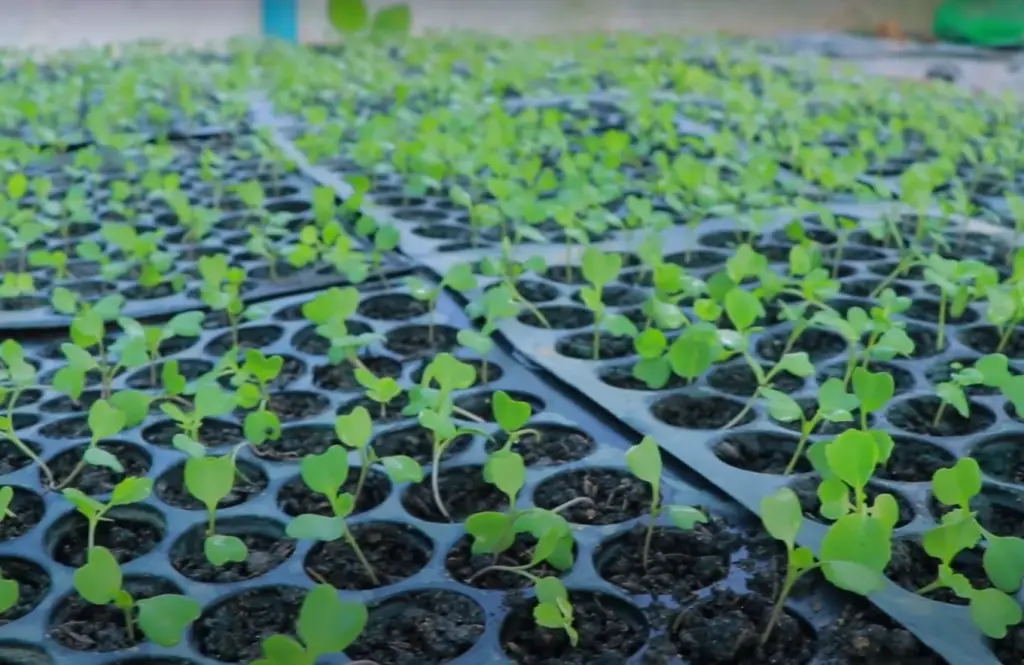
To ensure maximum benefit, plant potatoes at least 12 inches away from your broccoli plants so they don’t get in the way of their growth or compete with them for food and water resources. Another bonus is that you can use any excess potato leaves or tubers to make delicious dishes!
Rhubarb
Rhubarb is a great companion plant for broccoli as it helps to deter aphids, which are one of the main pests that attack broccoli plants. It also adds nitrogen to the soil, making it more fertile and increasing yield. Rhubarb has few disease problems so there’s no need to worry about introducing new diseases into your garden. However, take care not to let rhubarb spread too much since it can become invasive and choke out nearby plants. Planting it in an area away from other vegetable beds will help contain its growth. Additionally, rhubarb’s large leaves provide some shade and protection from strong winds for smaller plants like broccoli. This will help keep them healthy and free of damage throughout the growing season.
Rosemary
Rosemary is a fantastic companion plant for broccoli. In addition to being a great pest deterrent, rosemary also helps with soil fertility and aeration. Its strong scent can also help camouflage the smell of brassica plants like broccoli, which can be somewhat off-putting to pests. Planting rosemary near your broccoli will not only provide it with support and protection from pests, but also give it an extra boost of flavor! Rosemary adds a lovely herby flavor to any dish and can easily be incorporated into meals featuring broccoli. To get the most benefits from companion planting, make sure you plant enough rosemary around your bed of broccoli so that its aroma permeates the area.
Shallots
Shallots have a number of benefits, including enriching the soil and helping to repel certain pests such as aphids. Shallots can also add flavor and texture to dishes when used in cooking. Plant them near your broccoli, and they’ll provide extra protection against pest infestations. Plus, their presence will help further enhance the flavors of your cooked broccoli dishes! For best results, plant shallots about 4-6 inches apart from each other for optimal growth. You can harvest shallot bulbs once they reach an inch or more in diameter, usually around late summer or early fall. Enjoy!
Spinach
Broccoli is often grown together with spinach as they make great companion plants. This member of the Amaranthaceae family proliferates and complements broccoli’s growth cycle due to its fast-maturing nature. It also helps protect against some pests, such as aphids, that often attack broccoli plants. Additionally, spinach helps keep the soil moist and cool when planted near broccoli – an ideal environment for both vegetables. When planting spinach with your broccoli crop, be careful not to overcrowd the area since ample space is required for both vegetables to grow well. With proper care, you can enjoy a healthy harvest of both of these nutrient-rich plants!
Basil
Planting basil alongside broccoli can be beneficial. It can be planted around the base of the broccoli plants, providing a fragrant scent that also helps to deter insects and pests. Basil also helps to improve the growth and flavor of broccoli when grown close together. Additionally, it can provide nitrogen to the soil, which is beneficial for healthy growth. Be sure not to over-fertilize your basil as too much fertilizer will burn your broccoli’s leaves. Planting basil near your broccoli beds will give you bountiful harvests!
Chives
Chives, which belong to the Allium schoenoprasum plant family, make excellent companion plants for broccoli. Not only does this hardy herb keep away cabbage butterflies and aphids, it also helps to improve the flavor of your broccoli!
Plant them near the base of your broccoli plants and they will do their job without getting in the way. To get even more mileage out of chives, you can also use their edible leaves in salads, soups and other dishes for added flavor!Dill
Dill is a versatile companion plant for broccoli and can also help repel cabbage worms. It has feathery leaves that make an attractive addition to any garden, and its yellow flowers attract beneficial insects like bees and predatory wasps. Plant dill near your broccoli for a boost in both flavor and pest control.
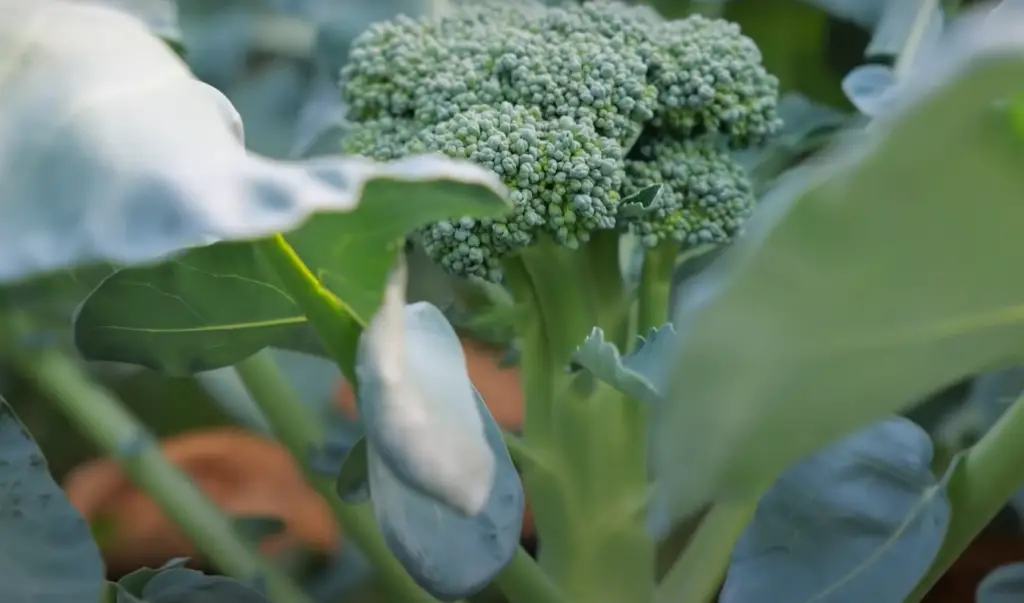
Be sure to harvest the dill regularly before it sets seed; otherwise, you may have an abundance of unruly dill the following season. You can use it just as you would use basil or other herbs!
Mint
Mint is a great broccoli companion plant and easy to maintain in the garden. The fragrant foliage is known to repel certain pests, such as aphids, white flies, leafhoppers, flea beetles, and cabbage looper caterpillars from attacking your broccoli crop. Mint will also attract beneficial insects like bees and hoverflies that can help pollinate your broccoli plants. To ensure its growth doesn’t overtake the rest of your garden, it’s best to contain mint by planting it in a pot or raised bed away from vegetables like onions and potatoes. Mint is an herbaceous perennial that self-seeds easily so you’ll want to keep an eye on it! If you’re looking for an aromatic addition to your broccoli patch, mint is the perfect companion plant.
Oregano
Using oregano as a companion plant for broccoli is a good idea. It has a strong aroma that helps to repel some of the pests that can damage both the broccoli and other nearby plants. Oregano also helps improve soil fertility, making it easier for the broccoli to thrive. Plus, oregano adds a tasty flavor to dishes when used as a culinary herb! While oregano should be planted near the edges of your garden in order to protect the broccoli from pests, it will still provide many benefits in its proximity. Planting oregano with your broccoli is sure to be a winning combination!
Sage
Sage is an herbaceous perennial in the mint family. It’s a great companion plant for broccoli, because it helps to repel pests such as cabbage moths and aphids that could otherwise damage your broccoli crops. Sage also has antibacterial properties which can help keep diseases from spreading among your plants. Additionally, its fragrant leaves are known to attract beneficial insects like bees! When planting sage alongside your broccoli, remember to give it sufficient space so that both plants can thrive. The best way to do this is by spacing them at least two feet apart. Finally, be sure to harvest sage often once it reaches maturity – this will keep the plant healthy and produce more flavorful leaves for you to enjoy!
Thyme
Broccoli and thyme make great companion plants. It is a hardy, low-growing herb that grows about 6 inches tall. It has dark green foliage and small pinkish blooms in the summer months. Its strong scent helps discourage pests, making it an ideal choice for broccoli beds. Thyme also makes a great addition to any dish as it adds a unique flavor to many recipes. Plant thyme around your broccoli plants and enjoy their company! [1]
Bad Companions
Not all plants make good companions when planted alongside broccoli. Plants such as mustard, potatoes, sunflowers and turnips can negatively affect the growth of your broccoli crops. This is because they are heavy feeders and will draw away the nutrients from the soil before the broccoli has a chance to absorb them. Also, some plants may attract particular insects or diseases that can harm your broccoli. Common bad companion plants include.
Tomatoes
Tomatoes are a surprisingly bad companion for broccoli, despite being one of the most popular vegetables to grow in a garden.
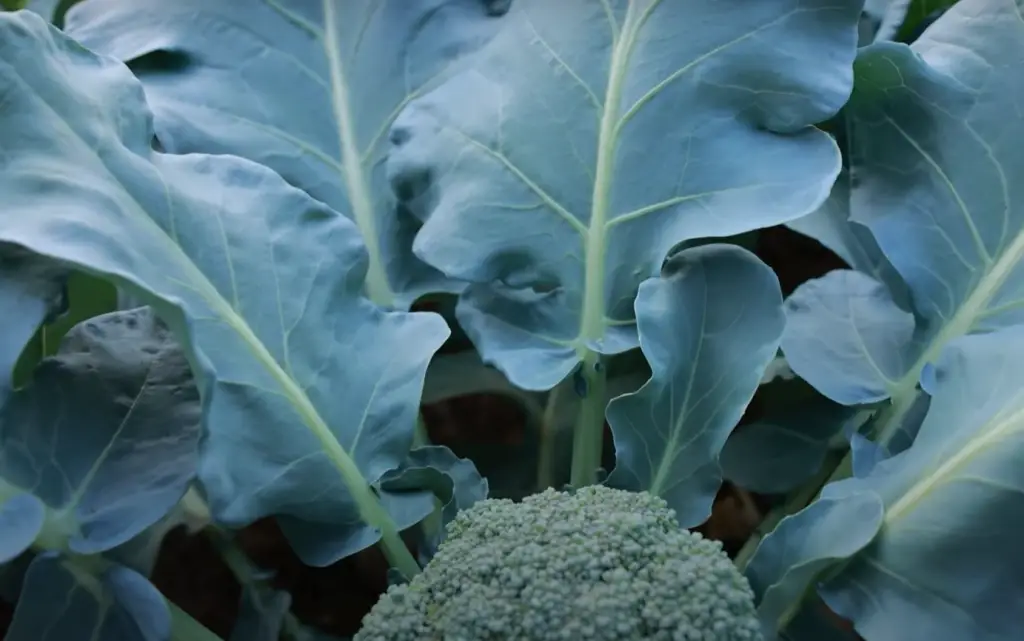
This is because tomatoes attract whitefly and aphids, two pests that can remain on the tomato plants and spread quickly throughout your vegetable patch.
Eggplant
Eggplant is another close relative of tomatoes and can share many of the same pests. It can also attract cucumber beetles, which can spread bacterial wilt from plant to plant and cause damage to your broccoli crops.
Lima beans
Lima beans can also attract aphids, beetles and whiteflies. Additionally, these beans are legumes and draw nitrogen away from the soil, meaning that your broccoli won’t have access to this essential nutrient.
Peppers
Peppers, like tomatoes and eggplants, attract a range of pests. These include mites, aphids and whiteflies that can spread to your broccoli plants. Plus, the foliage of pepper plants is slightly more prone to disease than other vegetables so this could put your broccoli at risk.
Pole beans
Pole beans are a particular type of legume, so they draw nitrogen away from the soil that would be better used by your broccoli. Additionally, these plants attract aphids and bean beetles which can also spread to your broccoli crops.
Snap beans
Similar to pole beans, snap beans are also legumes and therefore draw away nitrogen from your broccoli. These plants also attract pests such as aphids, whiteflies and bean beetles which can cause damage to your broccoli.
Squash
Squash can also attract pests such as the squash bug which can spread quickly and do significant damage to your broccoli plants. Additionally, these plants are heavy feeders and will compete with the broccoli for nutrients in the soil.
Strawberries
Strawberries are another type of plant that can do harm to your broccoli. The leaves of the strawberry plants can transfer diseases and viruses to your broccoli, so it’s best to avoid planting them near your vegetable patch. Additionally, the roots of strawberry plants can draw away vital nutrients from the soil before they have a chance to be absorbed by the broccoli. [2]
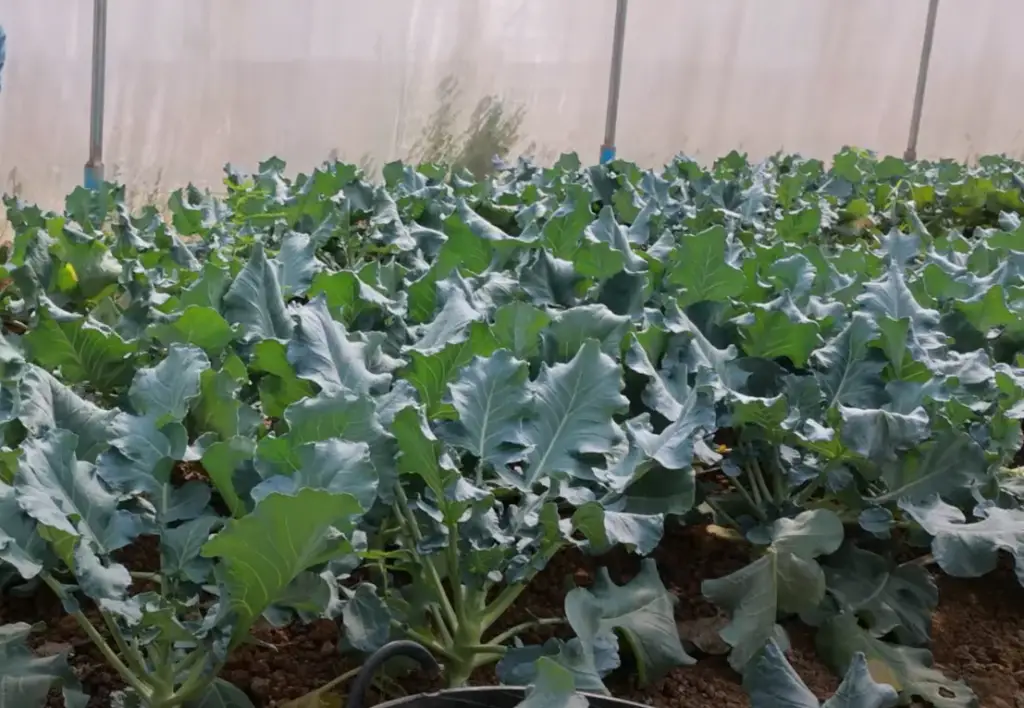
Having knowledge about both good and bad companion plants is key when growing broccoli in any garden setting. Avoiding bad companions will help ensure that your broccoli crops get all the nutrients they need without having to compete with other vegetation for resources. Additionally, keeping unwelcome pests away from your garden is essential in keeping your vegetables healthy and free from disease.
FAQ
What is the best companion plant for broccoli?
One of the best companion plants for broccoli is beets. This is because beets absorb some of the soil-borne diseases that can affect broccoli, helping to protect it from damage. They also offer a great source of nitrogen, which is beneficial for other plants in the garden. In addition, beets provide a nice visual contrast to the green foliage of broccoli. [3]
What does broccoli like to be planted by?
Broccoli does well when planted alongside certain vegetables and herbs. Some of these friendly neighbors are:
- Spinach – The two plants will thrive together as the spinach helps to shade broccoli’s roots from too much sun, while also keeping them cool and moist.
- Onions – Planting onions near your broccoli can actually increase yields by up to 30%. However, it is important not to plant too close together or they may compete for nutrients.
- Cauliflower – Cauliflower and broccoli are a great combination as both share similar soil requirements and fertilizers so this pairing makes for an efficient use of space in the garden.
- Parsley – In addition to providing a pleasant color contrast in the garden, parsley helps attract pollinators and beneficial insects which can help ward off pests that may otherwise damage your broccoli plants.
- Celery – Planting celery near broccoli helps to protect the plants from wind, which can cause damage to delicate broccoli stalks.
These are just a few of the many vegetables and herbs that can be planted alongside broccoli for increased yields and healthier plants. To get information on more companion plants for your garden, consult an expert or do further research online.
Can you plant broccoli and zucchini together?
Planting zucchini and cucumbers together is not recommended. Though zucchini and cucumbers are both members of the Cucurbitaceae family, they do not make good companion plants for broccoli. While some gardeners believe that planting zucchini with broccoli may help to deter certain pests such as aphids and flea beetles, the reality is that zucchini can actually attract other pests such as squash bugs or cucumber beetles.[4]
Can I plant broccoli and carrots together?
No, you shouldn’t plant broccoli and carrots together. The plants will be in competition for the calcium that is present in the soil. Carrot roots will take up the calcium, leaving precious little for your broccoli plant. If you must plant them together, add extra calcium to the soil before planting them. [5]
Useful Video: Broccoli Companion Plants
Conclusion
In conclusion, companion planting is a great way to maximize your garden’s potential and keep your plantings healthy. Broccoli is a great pick for companion gardening as it pairs well with other plants and helps keep pests away from your vegetable patch. By choosing the right broccoli companions, like cabbage, kale, borage, marigolds, and nasturtiums you can help ensure that your vegetables are getting the nutrients they need while deterring predators. With careful planning and some basic maintenance you can have a thriving garden full of delicious vegetables grown with companion plants! Good luck!
References:
- https://gardenerspath.com/plants/vegetables/broccoli-companion-plants/
- https://www.thespruce.com/companion-plants-for-broccoli-2540037
- https://www.bhg.com/companion-planting-broccoli-7371305
- https://www.homesandgardens.com/gardens/zucchini-companion-plants
- https://www.gardenerbasics.com/blog/broccoli-companion-plants





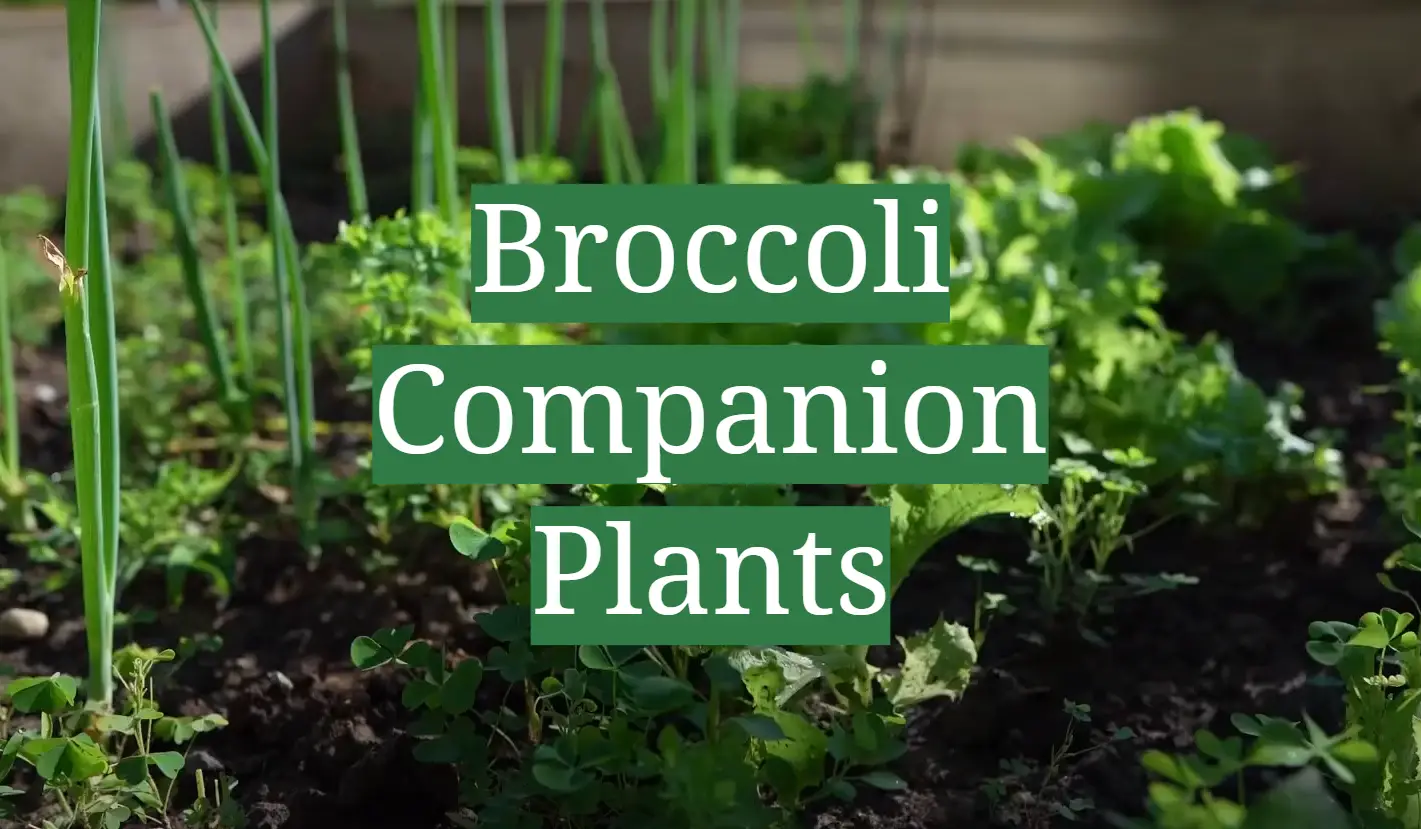




Leave a Reply
View Comments